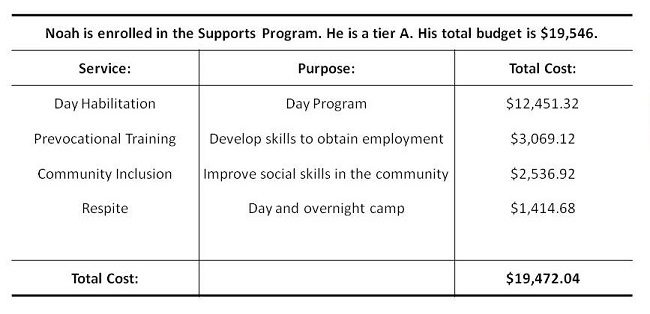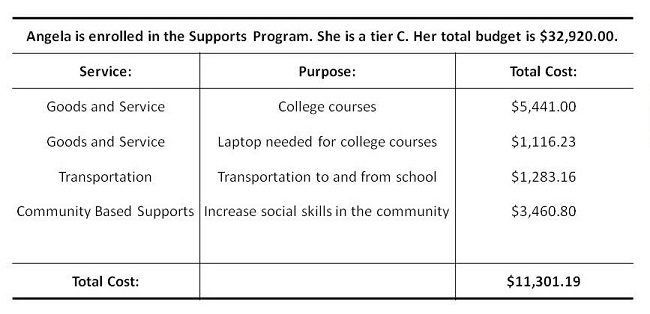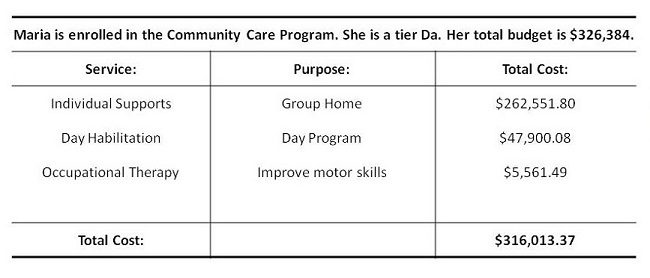DDD Eligibility for Adults With Special Needs
DDD Eligibility Requirements for Adults Over 21
To qualify for DDD funded Support Coordination services, individuals must meet the following three eligibility criteria:
- Functional criteria of having a developmental disability. Individuals must prove that they have had a chronic physical and/or intellectual disability that manifested in the developmental years prior to age 21.
- Maintaining Medicaid eligibility.
- New Jersey State residency.
For assistance with the DDD Eligibility Requirements in New Jersey, contact the Intake Unit within the individual’s DDD Community Service Office (CSO). For a list of the Community Services Offices in your County click here.
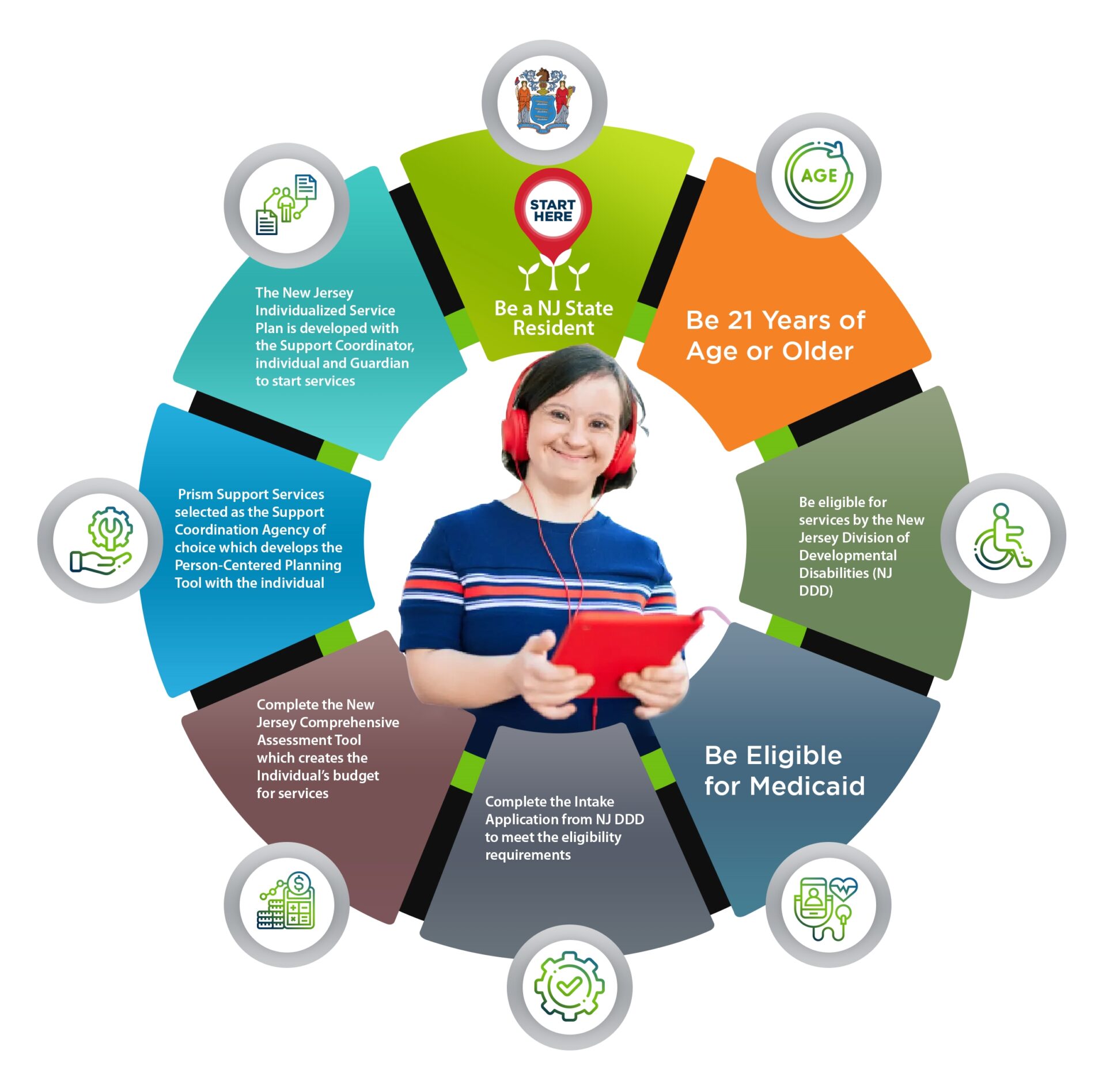
DDD Eligibility Application
Although DDD services take effect until an individual is 21 years old, it is possible to apply at the age of 18 to be evaluated by the DDD for functional eligibility for services. To be evaluated for eligibility for DDD-funded services, you can complete the Full Application for Eligibility from the New Jersey Department of Human Services website. There is also a Short Application for Eligibility for individuals who are 18 or older and were previously determined eligible for developmental disability services through PerformCare.
The completed Application for Eligibility, including all signed forms and related documentation, must be mailed to the Community Services Office that serves the applicant’s County of residence. If you have questions or need assistance with steps of the DDD eligibility process, contact the DDD Community Service Office in your County.
New Jersey Comprehensive Assessment Tool (NJ CAT)
After the application has been approved as a part of the DDD eligibility requirements in New Jersey, you need to take the NJ CAT assessment. The NJ CAT is a mandatory needs-based assessment that determines an individual’s eligibility/tier to receive DDD-funded services. During the intake process, the individual’s caregiver must complete the NJ CAT assessment which is administered by a trained DDD facilitator. The caregiver should be someone who knows the individual best such as a family member, guardian, residential staff. This survey is used to determine needed post-secondary supports and to assign an individualized budget for services.
NJ CAT Tier Assignment and Budget Allocation
The NJ CAT assessment results summarizes the score based into three main areas:
• Self-Care
• Behavior
• Medical
The individual is assigned a tier (i.e., A, B, C, D, E) based on the NJCAT score. Each tier has a budget that includes the following components:
• Employment/Day Supports
• Individual/Family Supports
Below is the Tier and Budget allocation as of 2024.
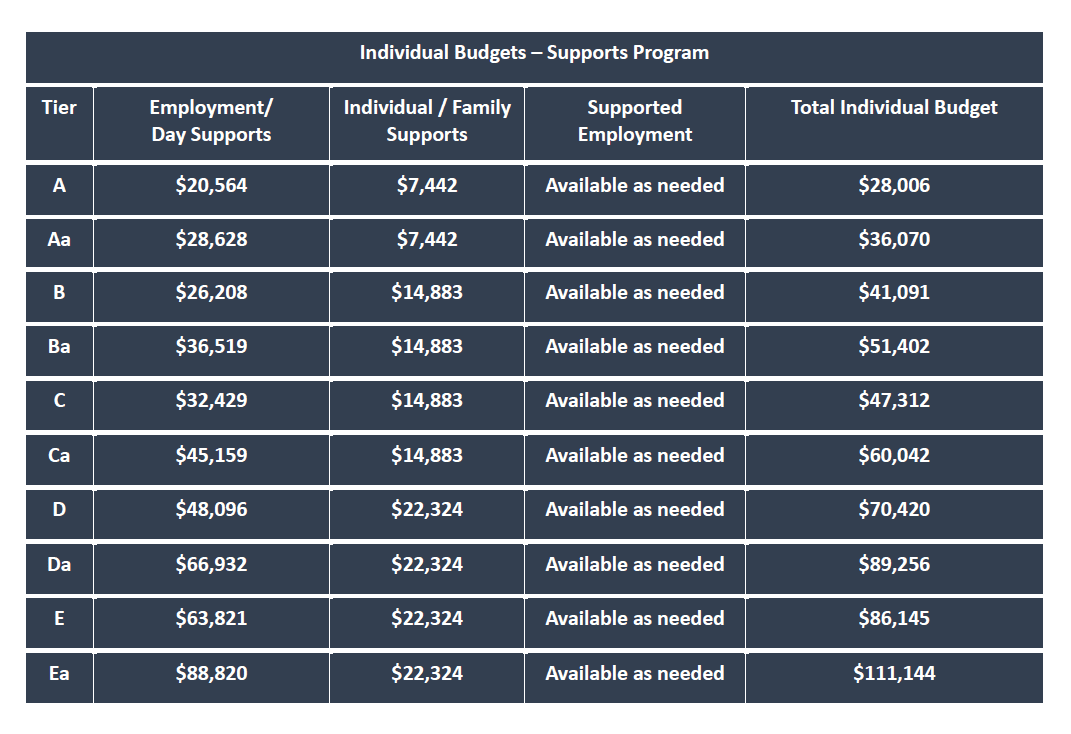
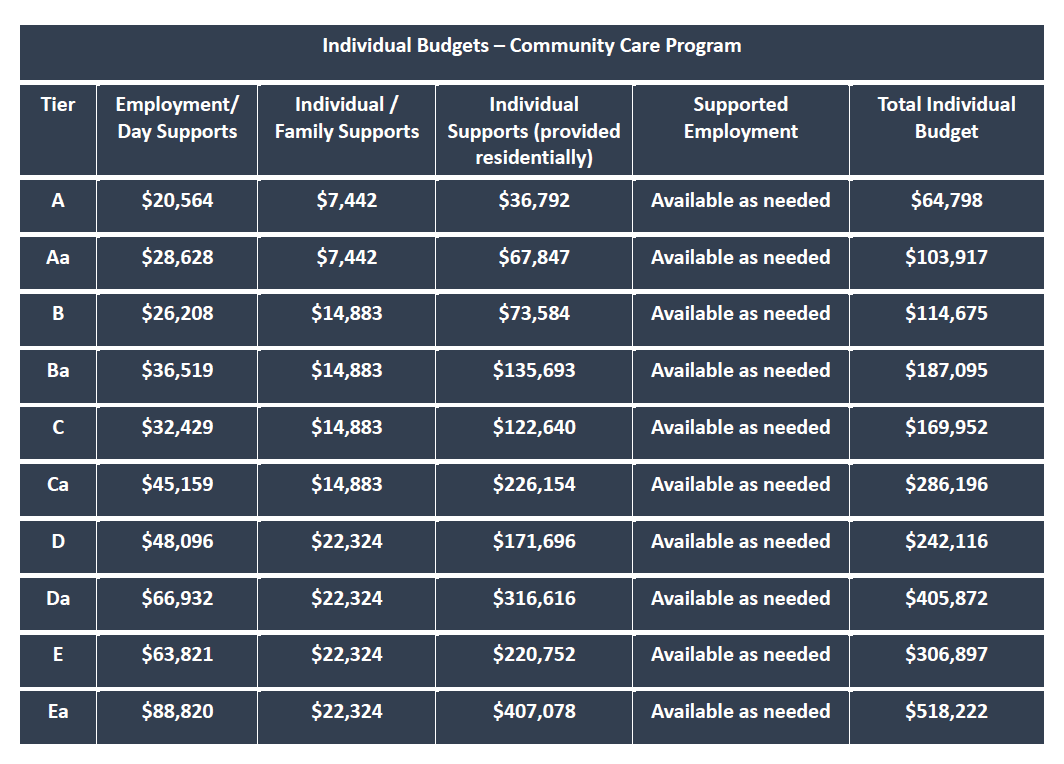
Support Coordination Agency Assignment
Once an individual has been assigned a budget for DDD services, he or she may now choose a Support Coordination Agency to work with. This choice can be made by the individual or guardian/family member completing and submitting a Support Coordination Agency Selection Form.
Once the individual is assigned to our agency, the Support Coordinator (SC) will contact the individual, caregiver or guardian to schedule an intake meeting.
The SC then drafts an Individualized Service Plan (ISP) with input from the individual, guardian or caregiver. Once the ISP is approved, services can officially begin.
The SC continues ongoing support with the individual, guardian or caregiver at least once per month.
Here is a list of some of the types of support services available:
- Assistive Technology
- Behavioral Supports
- Community-Based Supports
- Community Inclusion
- Day Habilitation
- Goods and Services
- Occupational Therapy
- Prevocational Training
- Respite
- Supported Employment
- Transportation
- Residential Placement
Finally, below are some examples of budget allocations for clients:
